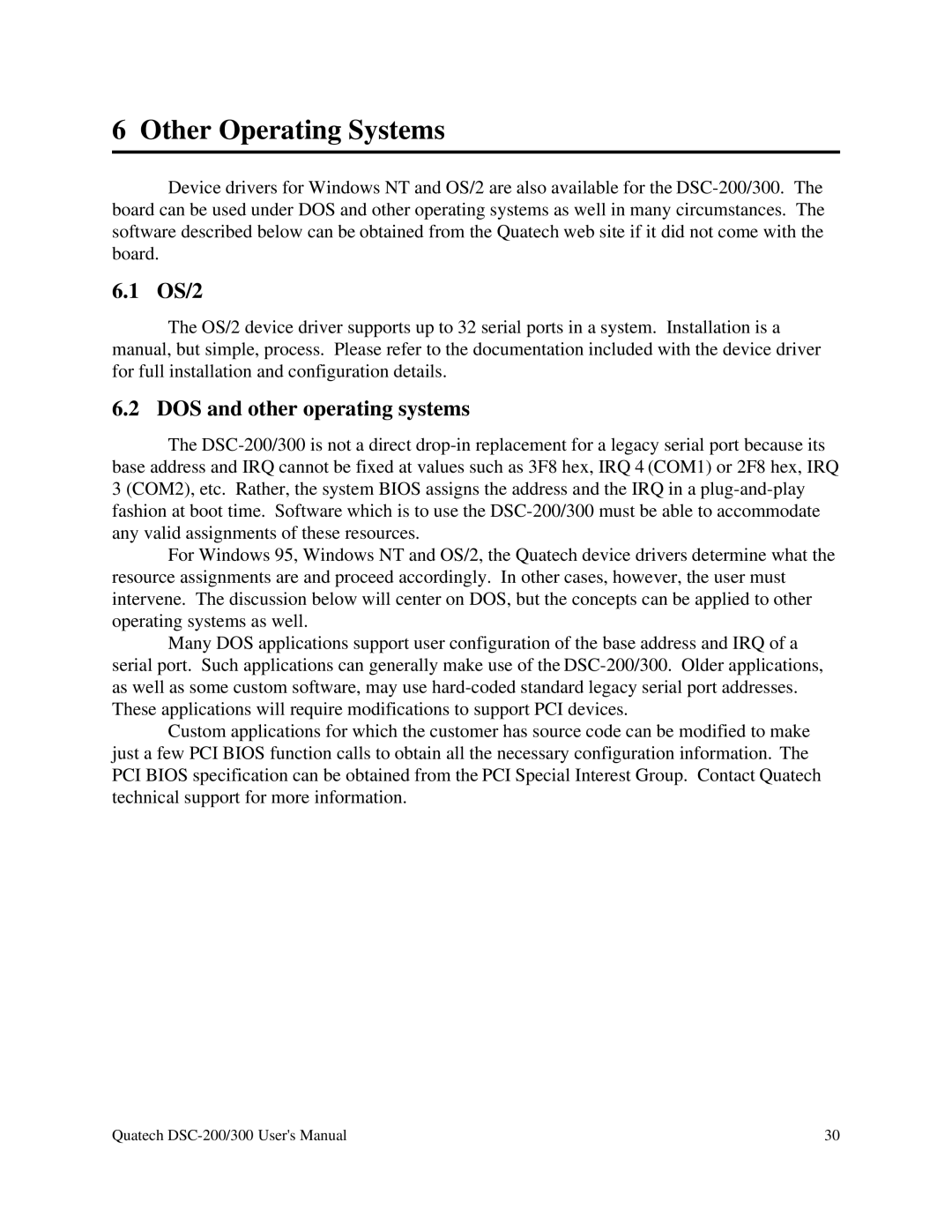6 Other Operating Systems
Device drivers for Windows NT and OS/2 are also available for the
6.1 OS/2
The OS/2 device driver supports up to 32 serial ports in a system. Installation is a manual, but simple, process. Please refer to the documentation included with the device driver for full installation and configuration details.
6.2 DOS and other operating systems
The
For Windows 95, Windows NT and OS/2, the Quatech device drivers determine what the resource assignments are and proceed accordingly. In other cases, however, the user must intervene. The discussion below will center on DOS, but the concepts can be applied to other operating systems as well.
Many DOS applications support user configuration of the base address and IRQ of a serial port. Such applications can generally make use of the
Custom applications for which the customer has source code can be modified to make just a few PCI BIOS function calls to obtain all the necessary configuration information. The PCI BIOS specification can be obtained from the PCI Special Interest Group. Contact Quatech technical support for more information.
Quatech | 30 |
